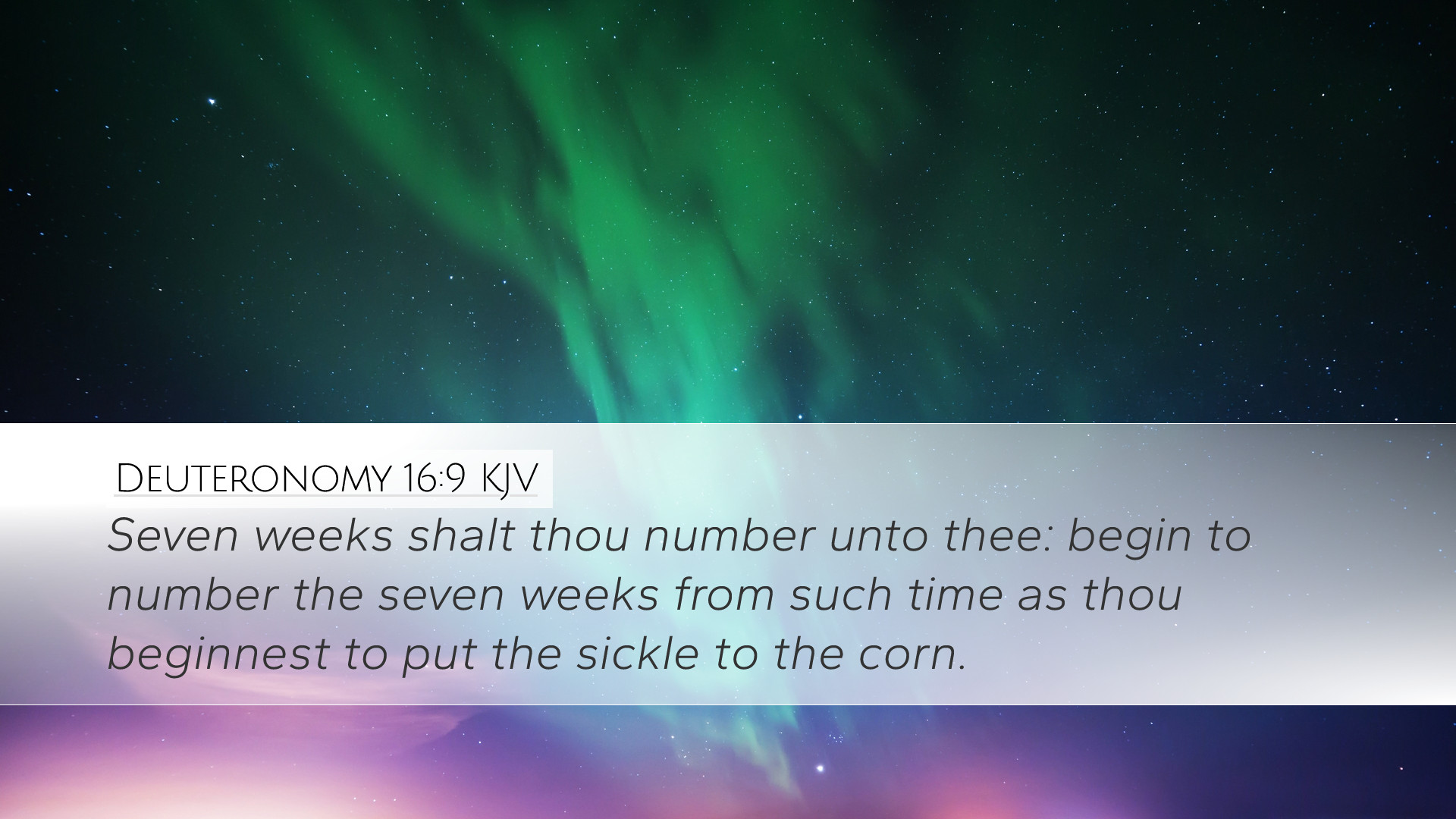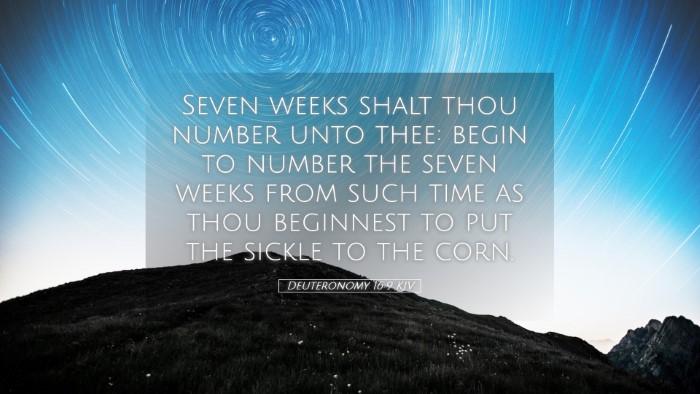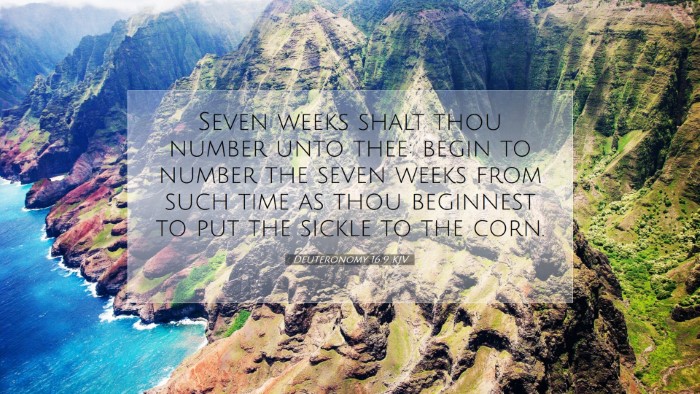Commentary on Deuteronomy 16:9
Bible Verse: "You shall count seven weeks for yourself; begin to count the seven weeks from the time you begin to put the sickle to the grain."
Introduction
Deuteronomy 16:9 is part of Moses' address to the Israelites, focusing on the importance of religious festivals. This specific verse initiates the process of counting the weeks leading up to the Feast of Weeks, or Shavuot, which celebrates the harvest and the giving of the Law at Sinai. This commentary compiles insights from various public domain sources including Matthew Henry, Albert Barnes, and Adam Clarke, providing a comprehensive understanding of this important Scriptural instruction.
Historical Context
The context of Deuteronomy is crucial for discerning the significance of this instruction. The Israelites were at the threshold of entering the Promised Land, and Moses was reiterating the Law and covenant before his impending death. The instructions regarding festivals were not only a means of worship but also served as a reminder of God’s provision and presence among His people.
Moses’ Reminder to the People
Moses emphasizes the importance of remembering God's past deeds and the covenant relationship established through the Law. The counting of weeks is an act of obedience that reflects an acknowledgment of God’s sovereignty over the harvest, as well as His faithfulness in delivering His people.
Understanding the Counting of Weeks
The specific instruction to "count seven weeks" serves both symbolic and practical purposes:
-
Symbolism of Completion:
The number seven often symbolizes completeness in Scripture. By counting seven weeks, the Israelites acknowledge God's completion of the harvest season and the fullness of His blessings.
-
Preparation for the Feast:
This counting process prepares the heart of the individual and the community, fostering a spirit of anticipation and gratitude towards God’s provision, climaxing in the celebration of Shavuot.
Insights from Commentaries
Matthew Henry
Henry highlights the spiritual significance behind the act of counting. He interprets this instruction not merely as a harvest celebration but as an invitation to reflect on the spiritual harvest in the lives of the faithful. His perspective encourages believers to consider their personal spiritual growth and to acknowledge how God has worked in their lives since their last festival.
Albert Barnes
Barnes provides a detailed exploration of the term "begin to put the sickle to the grain." He points out that this phrase indicates the commencement of the harvest season and underscores the importance of timing in God’s plans. This timing reflects obedience and readiness, prompting readers to contemplate how they respond to God’s call in their lives when opportunities for growth and service arise.
Adam Clarke
Clarke emphasizes the communal aspect of this observance, where the community is called to gather together, share in the bounty of the harvest, and recognize the collective blessings of God. He points out that festivals are opportunities for worship and fellowship, reinforcing the importance of unity in the faith community.
Theological Implications
Deuteronomy 16:9 serves as a reminder of the cyclical nature of God’s provision and blessing. This established rhythm of counting and celebration ties the spiritual life of the individual to the communal life of the Israelite people, suggesting that personal faith is deeply intertwined with the worship life of the community.
Application for Modern Believers
For pastors, students, and theologians, this verse offers substantial material for preaching, teaching, and personal reflection. It invites believers to:
-
Reflect on God’s Provision:
Recognizing that every season of life is orchestrated by God's hand encourages gratitude and trust in His timing.
-
Celebrate Together:
The communal aspect of worship grows stronger as believers gather to celebrate the faithfulness of God in their lives and communities.
-
Engage in Spiritual Growth:
Counting the weeks can serve as a metaphor for assessing one’s spiritual journey, prompting individuals to consider their growth and reliance on God during times of harvest and challenge.
Conclusion
In summary, Deuteronomy 16:9 captures the essence of God's guidance in the life of His people through the rhythms of religious observance. By examining the historical context and the insights of respected theologians, contemporary believers are encouraged to engage deeply with this text—seeing it not only as historical law but as a living testament to God’s unwavering faithfulness and an invitation to actively participate in His kingdom work.


